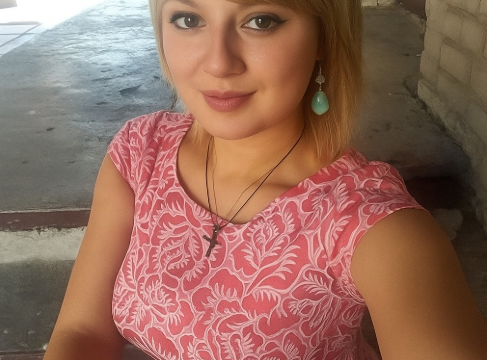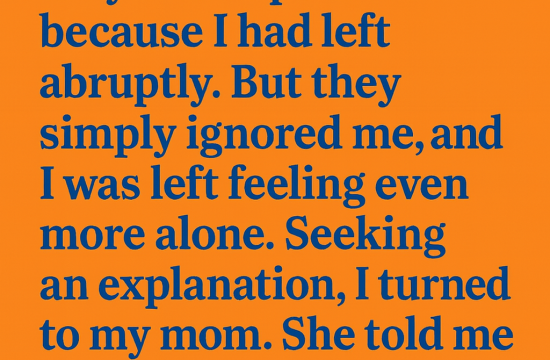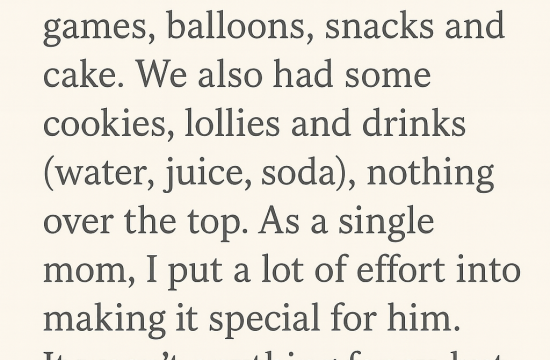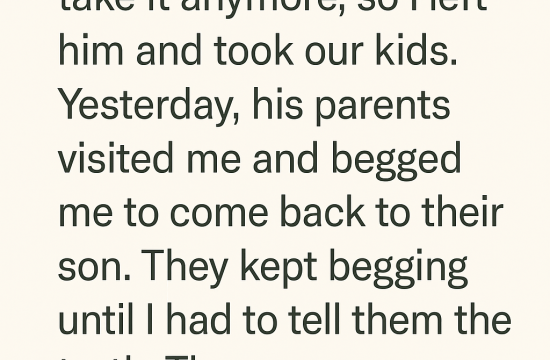Right after giving birth and while still being in the hospital, one of our readers discovered that her mother-in-law had thrown a surprise birthday party for her husband that she didn’t even know about. What followed was a whirlwind of hurt feelings, an apology that didn’t feel sincere, and a husband who didn’t understand why she couldn’t just “let it go.” Here’s her story of navigating new motherhood, family drama, and the struggle to forgive without losing herself.
“I had just gone through a complicated birth and was still recovering in the hospital. My body was weak, my emotions raw, and all I wanted was rest and my husband’s presence. Then, to my shock, I found out my mother-in-law had secretly organized a birthday party for him while I was still lying in a hospital bed.
When I confronted my husband and said, ‘It really hurt my feelings,’ he laughed it off, pulled out his phone, and showed me the invitation she had already sent out — as if that excused it.
The part that stung the most? She invited his ex-fiancée to the party. It felt like a deliberate twist of the knife at a moment when I was most vulnerable. When I expressed how deeply hurt I was, my husband shrugged and told me his mom simply hadn’t realized my recovery would take longer.
Later, he tried to patch things up with a romantic dinner, just the two of us. And eventually, his mother gave me an apology — though it felt more like words spoken out of obligation than genuine remorse. Now, weeks later, I’m still struggling. I’m questioning her motives, questioning why my pain wasn’t taken seriously, and questioning how to forgive without erasing myself just to “keep the peace.”
Meanwhile, my husband is growing frustrated. He insists I’m dragging this out and wants me to just “move on.” But how do you move on when the people closest to you treat your pain like an inconvenience?”
What This Story Teaches Us
1. Forgiveness is not instant — and it’s not owed.
Healing takes time. Forgiveness is a process that unfolds on your terms, not a deadline others impose. Pretending something didn’t matter when it cut deeply only delays true healing.
2. Your emotions deserve validation.
Postpartum recovery isn’t just physical — it’s an emotional storm. Dismissing feelings with a “let it go” doesn’t resolve the wound; it deepens it. Recognizing and naming what hurt you (“I felt excluded, disrespected, and unseen”) is the first step toward healing.
3. Trust is repaired through empathy, not grand gestures.
A dinner may be thoughtful, but real emotional repair requires listening, validation, and ongoing effort. Healing your relationship will come when your husband learns that what you need isn’t distraction — it’s understanding.
4. Boundaries are essential for peace.
Especially in postpartum recovery, it’s okay to draw clear lines. Saying, “In the future, I’d like us to make family decisions together” isn’t rude — it’s a form of self-respect. Boundaries protect your emotional well-being and prevent history from repeating itself.
5. Seeking support is strength, not weakness.
Sometimes, these moments are signs of a larger emotional strain. If you’re feeling persistently overwhelmed or numb, consider talking with a therapist. Even a few sessions can offer tools to manage family conflict and restore peace within yourself.
Motherhood should be a time of bonding, not battles. Protecting your peace and healing in your own way is not selfish — it’s essential. Forgiveness, if it comes, will come from a place of strength, not pressure.











